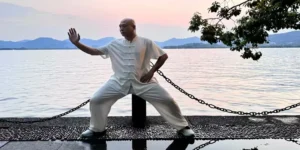Tai Chi is a traditional Chinese martial art. Now more and more teenagers and children are practicing Tai Chi. Shen Jiangfei International Martial Arts School is an Authentic Chinese Tai Chi for Kids School. We provide one-stop service to teach children to learn Tai Chi and offer Tai Chi training camp courses for you to choose from.
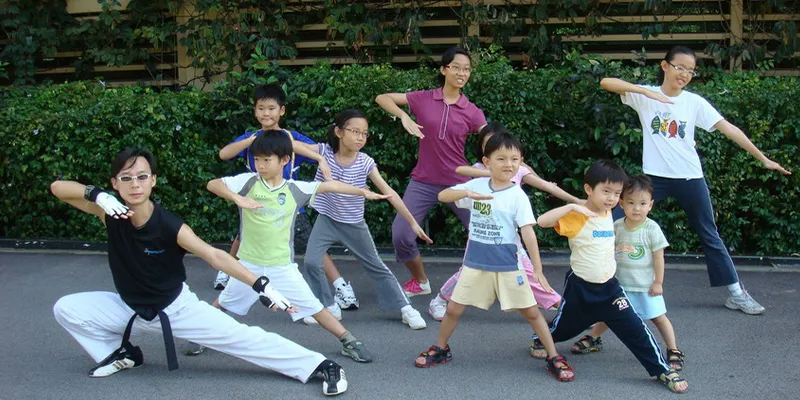
So, what are the benefits of Tai Chi for Kids? Are there any learning tips for children learning tai chi?
Benefit 1: Enhanced Physical Fitness
The slow, deliberate movements that define Tai Chi for Kids are a masterclass in kinesthetic learning. Children learn to shift their weight with control, coordinate arm and leg movements in harmony, and maintain stability through a range of postures. This continuous, mindful movement significantly improves:
Basic movements like stepping, turning, and reaching are refined, building a strong physical foundation. The tai chi practice constantly challenges children to find their center of gravity, reducing the fall risk and improving overall posture. Studies, including research associated with Harvard Medical School, have shown Tai Chi’s effectiveness in enhancing balance across age groups.
Kids tai chi classes heighten a child’s innate sense of where their body is in space, leading to greater physical confidence and grace. The heightened body awareness is crucial for all physical activities and daily life.
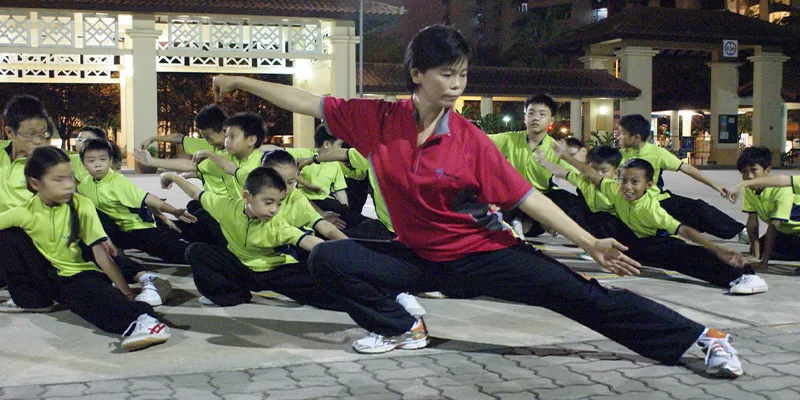
Benefit 3: Improve Attention
Children need to concentrate when practicing Tai Chi and need to be guided by their thoughts. Children are lively and active, and it is often difficult for them to concentrate. Practicing Tai Chi can exercise children’s perception ability and improve their attention and self-control. Children who persist in practicing Tai Chi can improve their attention and perception.
Practicing sustained attention on movements and breath strengthens neural pathways associated with concentration, helping children tune out distractions more effectively. Such studies, published in the Journal of Cognitive Enhancement, suggest mindful movement practices like Tai Chi can positively impact cognitive functions, including memory.
The practice inherently teaches children to integrate intention with movement, fostering greater overall cognitive awareness and control.
Benefit 3: Stabilize Emotions and Stress Reduction
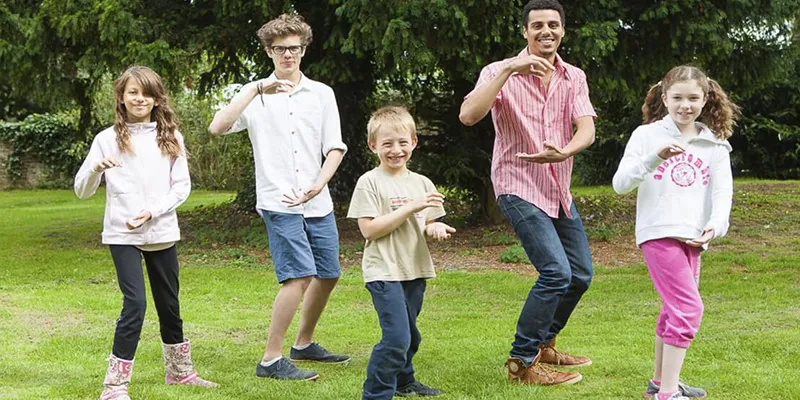
Childhood isn’t immune to stress—academic pressures, social dynamics, and sensory overload can take a toll. Tai Chi for Kids acts as a powerful antidote. Its core components work synergistically to soothe the nervous system:
Focusing on the present moment and the flow of movement acts as a moving meditation, pulling attention away from worries. Consciously slowing and deepening the breath is a direct signal to the body to relax, lowering heart rate and calming the fight-or-flight response. This is a skill children can use anywhere, anytime they feel overwhelmed.
Well-structured kids tai chi classes provide a supportive, non-competitive space where children feel safe to slow down and simply be. This tai chi environment fosters inner peace and emotional resilience, teaching kids healthy coping mechanisms for managing anxiety and frustration.
Benefit 4: Building Confidence
Unlike many youth sports focused on winning peers, Tai Chi for Kids focuses on personal progress, self-mastery, and inner strength.
Children experience tangible improvement as they learn and refine movements, boosting their belief in their own abilities (“I can do this!”).
Confidence stems from feeling capable and centered within oneself, rather than relying on comparisons or external praise. Kids tai chi classes cultivate this inner sense of worth.
Learning complex forms requires patience and perseverance. Successfully getting through this process builds resilience and a powerful “can-do” attitude applicable to all areas of life.
Benefit 5: Fostering Connection
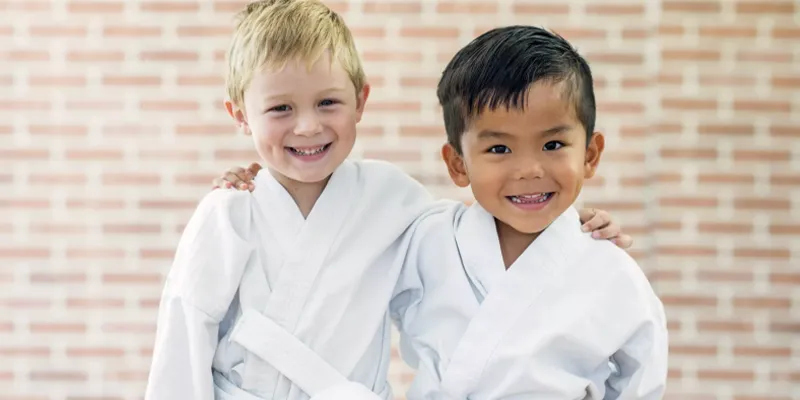
While primarily an individual practice, Tai Chi for Kids within a class setting offers valuable social-emotional learning:
Respect for Self and Others: The practice often begins and ends with a bow, instilling rituals of respect for the art, the instructor, fellow students, and oneself.
Fostering Discipline: Regular practice requires commitment and the discipline to show up and engage fully, even when challenging. This builds character and a strong work ethic.
Positive Social Environment: Kids tai chi classes provide a shared, peaceful experience. Children learn tai chis in a cooperative, supportive atmosphere, fostering a sense of belonging and community without the pressure of competition. They learn to move in harmony with others, developing empathy and social awareness.
Finding Tai Chi for Kids Tips
Tai Chi coaches should not only be proficient in Tai Chi but also have rich experience in teaching children. Children’s Tai Chi coaches should preferably be certified coaches, who will better understand children’s physical and mental characteristics, communication methods, and teaching experience. Some Tai Chi schools have free trial courses, and it is best to sit in on a class before signing up. Observe the classroom atmosphere and teaching methods, whether it is safe, respectful, enjoyable, etc.
Respect your child’s interests. You can first let your child watch children’s Tai Chi videos, Tai Chi DVDs, and participate in trial classes. For children, the focus of learning Tai Chi is on the experience process. It is not demanding on the accuracy of movements and learning progress. Let the child feel the peace of body and heart.
If parents are also interested, they can practice a few simple movements with their children at home to increase parent-child interaction and fun. Maintain good communication with the coach to understand the child’s learning situation, progress and difficulties encountered. Feedback to the coach in a timely manner.

